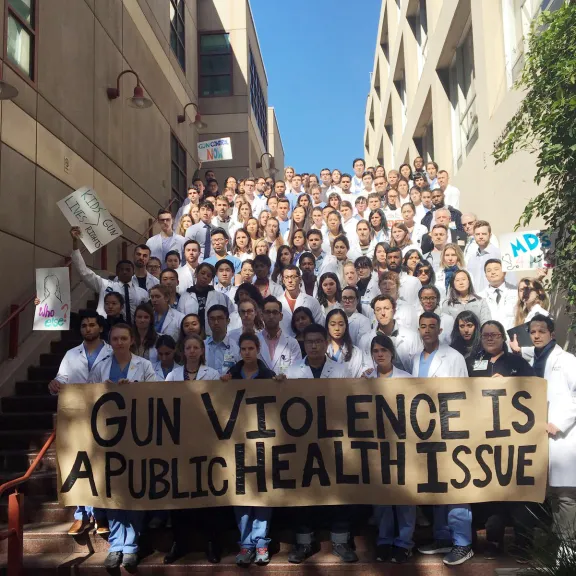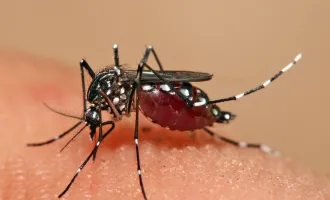
UCSF 'Comes Up Short' on Racial Justice: Report
How does UCSF measure up when it comes to racial justice? According to an evaluation of 10 leading medical schools across the U.S. by the national chapter of White Coats for Black Lives, UCSF’s overall grade is B minus.
WC4BL released its Racial Justice Report Card last month, which graded schools along a line of 15 metrics such as minority representation, recognition, recruitment and support resources.
The national organization of medical students and physicians in training, found that all 10 medical schools "came up short" on promoting diversity, serving patients of color, and ensuring fair treatment of their workers.
UCSF received one A for anti-racism training, followed by seven Bs and six Cs.
Rachel Schenkel, a UCSF medical student and WC4BL member, said her group is especially concerned right now with the C for staff support and insurance as UCSF labor unions go on strike.
In its report Pioneering Inequality: Race, Gender, and Income Disparities at the University of California, Local 3299 published that the number of black workers in the UC workforce has decreased by 37 percent since 1996 and draws attention to UCSF’s treatment of immigrant laborers.
“It is hard to take seriously UCSF’s claim of commitment to the health of immigrant patients when in 2015 long-term immigrant contractors were fired after protesting wage cuts,” Schenkel said.
“We are disappointed with the Chancellor’s response to the strikes, which refused to give credit to AFSCME for protesting the decreasing racial, ethnic, and gender diversity of UC employees as well as increasing wage gaps between administrators and workers.”
Accountability to patient’s health means guaranteeing a living wage and fair working conditions and setting a precedent in the Bay Area for other employers of equitable treatment, said Schenkel.
“We feel UCSF’s response posits a false dichotomy between laborers and patients,” Schenkel said.
Another WC4BL UCSF member and medical student, Fabian Fernandez, said some administrators and deans have become allies in their cause, and have devoted their careers to addressing these types social inequalities.
“We are proud to be at a school that we believe is working incredibly hard to resist the context of systemic racism in which we live,” Fernandez said.
But not all of them are on the same page when it comes to the report card, he added.
“Some of these allies agreed with our grading system, while others found it to be harsh and not sufficient in recognizing the efforts UCSF has been making toward achieving racial justice.”
The UCSF WC4BL chose to focus this year on challenging gun violence in the streets and security culture in hospitals, according to Fernandez and Schenkel.
They stood with Daniela Cordero — a first year medical student, WC4BL member, and graduate of Marjory Stoneman Douglas High School — to organize a walk out and week of education around gun violence.
“We advocate against falling back on a security culture that relies on policing, militarization, and incarceration,” the group proclaimed last December during the third anniversary of the WC4BL Die-In. “In the wake of the murder of Jesus Delgado Duarte in San Francisco, the assassination of Stephon Clark in Sacramento, the state-sanctioned sweeps of homeless folks out of encampments, and the ICE raids across the state, we as healthcare cannot in good favor work with law enforcement.”
The national WC4BL organization said racism is a powerful force in American medicine. As evidence, they point to population-level health outcomes, where white Americans live, on average, 3.5 years longer than Black Americans. They also highlight healthcare delivery metrics, where Black patients with symptoms of heart attacks are less likely than white patients to undergo ECGs, chest X-rays, or oxygen saturation monitoring. And, the group said, racism is reflected in workforce statistics, with Black, Latinx, and Native American people representing 32% of the overall U.S. population, but only 8.9% of U.S. physicians.
With the Racial Justice Report Card, WC4BL advocates three goals:
1. Articulate a vision of specific actions that medical schools and academic medical centers should take to promote racial justice.
2. Increase transparency around current policies and practices of medical schools and academic medical centers.
3. Support community-based organizing efforts that hold medical schools and academic medical centers accountable for promoting racial justice.



